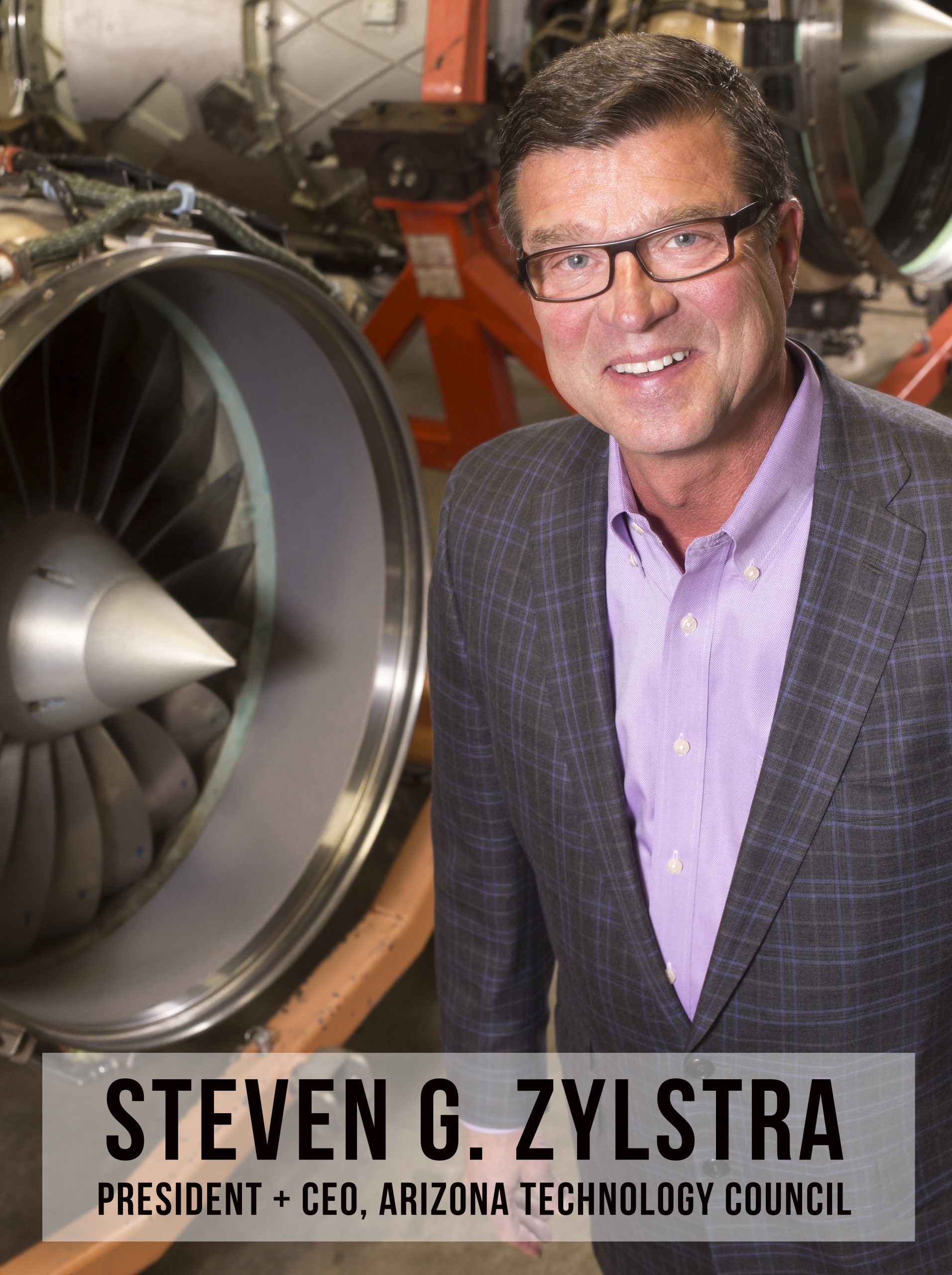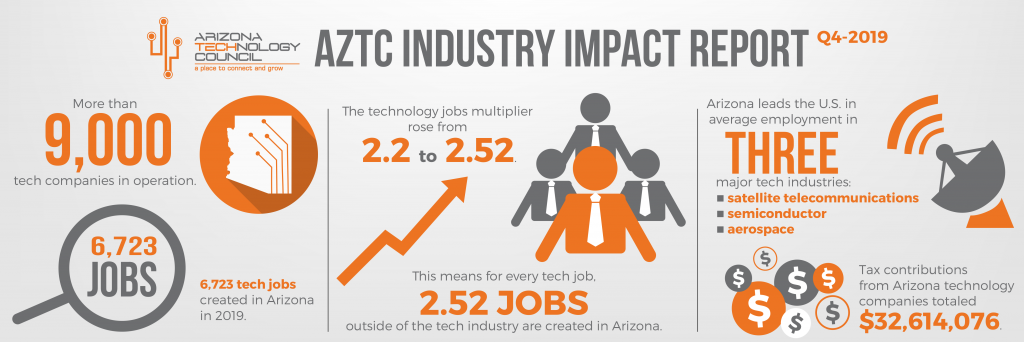2020 tech trajectory from CEO Steve Zylstra
Arizona tech industry hitting the fast lane
 By Steve Zylstra Guest blogger
By Steve Zylstra Guest bloggerYou might say we’re making headway on the freeway leading toward our future. The biggest imprint left by technology in Arizona this year were players of the new passenger economy. That’s the phrase Intel used in a recent study that predicted economic growth left by new types of vehicles — self-driving in particular — will rocket globally from $800 billion in 2035 to $7 trillion by 2050.
Lots of interest was generated by Waymo’s Early Rider Program and its Waymo One service. Chandler-based Local Motors, developer of the first 3D-printed car, gained its own buzz when it rolled out Olli, the first autonomous, electric, co-created and cognitive shuttle. Tucson has been the base for TuSimple as it developed self-driving commercial trucks, with expansion plans expected to generate an economic impact of $1.1 billion over a five-year span.
 Autonomous aside, Lucid Motors this month began construction of its electric-vehicle factory in Casa Grande, with more than $700 million in capital investment forecast by the mid-2020s and about 4,800 direct and indirect jobs by 2029. More trucking news will be made by Nikola Motor Co., which has established its headquarters and R&D facility in Arizona to work on revolutionary battery advancements as it prepares to break ground for a hydrogen-electric truck manufacturing plant in Coolidge.
Autonomous aside, Lucid Motors this month began construction of its electric-vehicle factory in Casa Grande, with more than $700 million in capital investment forecast by the mid-2020s and about 4,800 direct and indirect jobs by 2029. More trucking news will be made by Nikola Motor Co., which has established its headquarters and R&D facility in Arizona to work on revolutionary battery advancements as it prepares to break ground for a hydrogen-electric truck manufacturing plant in Coolidge.
For sure, don’t discount the traditional sectors of the technology community from leaving their own marks. As revealed in the latest 2019 Quarterly Arizona Technology Council Industry Impact Report, Arizona leads the nation in average employment in three major technology industries: satellite telecommunications, semiconductor and aerospace. For example, Arizona’s satellite telecommunications industry employment now ranks 11 times the national average. And the Raytheon-United Technologies merger should result in Raytheon Technologies expanding and creating thousands of new jobs.

This snapshot of this year’s highlights likely has you wondering where we’re headed. Think one word: sandbox. I’m referring to a place where new technology can get a trial run without being bogged down in a regulatory environment. The financial technology (fintech) sandbox operating under the watch of the Arizona Attorney General’s Office has taken off with eight companies in the program. Add to that Gov. Doug Ducey this year signing House Bill 2673 to launch the property technology (proptech) sandbox.
 And now that the stars seem to be aligned at last on Capitol Hill, we’re waiting for the final approvals to make the new US-Mexico-Canada Agreement a reality. USMCA, as it’s more commonly known, would replace NAFTA and update trade relations related to technology and other fields. As an example of what’s at stake, the U.S. Census Bureau reported our state had $20.4 billion in total trade with Mexico and Canada during 2018. In addition, Arizona on average exported $10.5 billion annually to the two markets between 2015 and 2017.
And now that the stars seem to be aligned at last on Capitol Hill, we’re waiting for the final approvals to make the new US-Mexico-Canada Agreement a reality. USMCA, as it’s more commonly known, would replace NAFTA and update trade relations related to technology and other fields. As an example of what’s at stake, the U.S. Census Bureau reported our state had $20.4 billion in total trade with Mexico and Canada during 2018. In addition, Arizona on average exported $10.5 billion annually to the two markets between 2015 and 2017.
Stay with this column in 2020 to follow the successes to come. We’re all sharing this great ride as our entire economy is expected to continue its upward trajectory, thanks to technology.
To read the Phoenix Business Journal article in its entirety, visit here.
